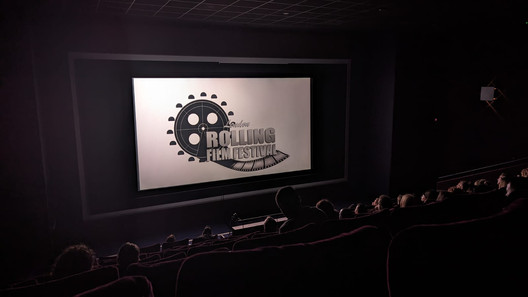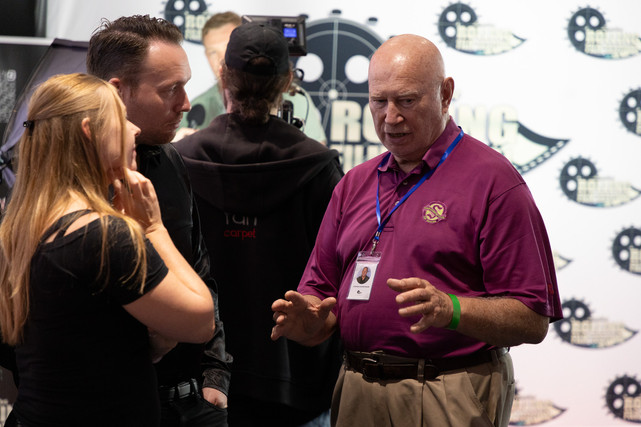London Rolling Film Festival: Connecting Creatives Across the Globe
- Cristina Sandu
- Jun 7, 2024
- 3 min read
Updated: Aug 4, 2024
Alida Pantone shares her journey from pub conversations in Shoreditch to creating a platform for filmmakers worldwide
The 14th edition of the London Rolling Film Festival, which brings together filmmakers from all over the world, is scheduled for September 27-28, 2024, at Vue Cinema Piccadilly.
What inspired you to create this festival?
It was my first year in the UK, and I was sitting with my mentor in a pub in Shoreditch that featured many TVs and a projector. We began discussing showcasing our acting works (primarily short films) to an audience of directors and casting directors to potentially secure more work. It could serve as an excellent networking opportunity with the kind of people I needed to advance my acting career. That idea, fuelled by passion and a bit of naivety, grew year by year into what the festival is today—a vibrant platform for filmmakers.
How has the vision of the festival evolved over time?
Our vision has always centred on creating connections between industry professionals at all levels to generate more work opportunities. Networking lies at the heart of our festival, so from the beginning, we’ve insisted that films be shown only if the filmmaker is present. My team and I focus on facilitating connections across the industry spectrum: connecting actors with directors, directors with producers, and producers with executives and investors.
What are the criteria for selecting films for the festival?
We aim to have a mix of everything: different styles, lengths, and stories to keep things exciting and to get people talking. To be chosen, a film must excel in at least one area that sparks conversation among potential collaborators for future projects. This could be anything from innovative technology and exceptional cinematography or lighting to remarkable acting, writing, or even a unique narrative voice. Sometimes, a film with modest production values but a compelling story might make the cut, or an experimental work that pushes the boundaries of conventional storytelling, even if it’s not entirely accessible.
The festival has an excellent platform for independent filmmakers. In which way does the festival supports the independent talents?
Firstly, we offer filmmakers the chance to showcase their work at a prestigious, centrally-located venue, VUE Piccadilly, giving their films visibility in a prime setting. Moreover, our “Help to Roll Fund” offers tangible financial support for filmmakers to embark on their following projects. Also, the festival garners press attention, featuring a red-carpet moment that elevates the event’s prestige and puts the spotlight on the filmmakers and their work.
Is interaction with local and global filmmaking communities significant?
The London Rolling Film Festival’s sense of community is vital. A key aspect of our festival is emphasising meaningful connections and networking. Filmmakers in competition must be present; this enriches the event and deepens the sense of community among participants.
Our Pitch Corner is another unique feature where anyone, not just filmmakers but also actors and other creatives, can pitch their projects or talents to the audience. This open platform encourages diverse participation and facilitates collaborations that might not otherwise occur.
Through these initiatives, we aim to create a vibrant, supportive environment that champions the spirit of collaboration and growth within the filmmaking community.
As the festival’s director and founder, what are the future trends and challenges for filmmakers, especially those entering the industry?
Integrating Artificial Intelligence in filmmaking is a significant trend that will shape the industry’s future. Far from being a challenge, AI represents a powerful tool that can open up new opportunities for filmmakers. We also explore current technological trends through industry panels, such as our recent discussion with Tom Paton on AI’s role in filmmaking, to stay connected with the cutting edge of cinema technology.
However, the industry must approach this new tool with a sense of responsibility. We must advocate for developing appropriate legislation, similar to the regulations that have guided the use of digital formats and the internet, to ensure that AI is used ethically and effectively.













Comentarios